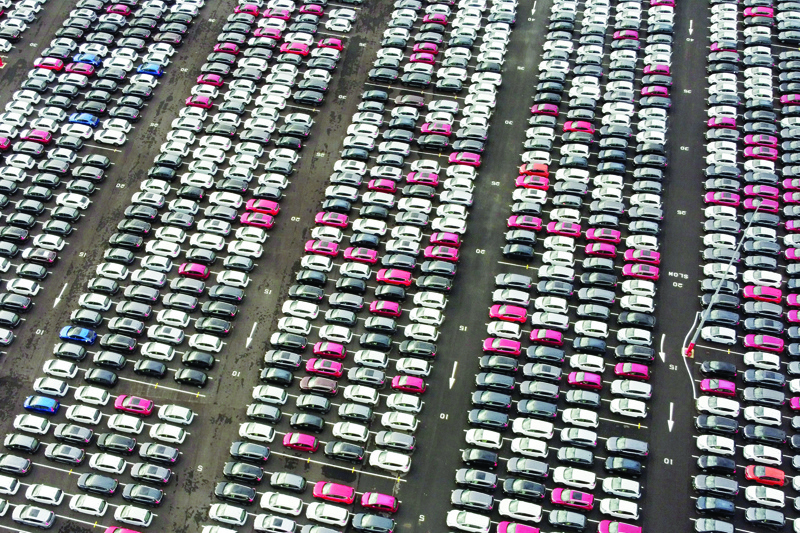
PARIS: For months officials pledged the flow of goods and services between Britain and the EU would remain smooth after Brexit, but a series of hiccups and delays shows the days of frictionless trade might well be over. Here are some of the problems that have cropped up since Britain's official exit from the bloc on January 1, despite a last-minute deal on future trade relations.
Supply strains
New customs and administrative formalities are now required for British goods entering the European Union-except, in theory, between Spain and the British territory of Gibraltar, and between Northern Ireland (Britain) and Ireland (EU). While the majority of shipments have continued, others have become targets of the more stringent checks.
On Friday, six freight loads bound for EU-member Ireland were turned away at the port of Holyhead in Wales for not having the correct paperwork, Stena Line ferries said. Even in Northern Ireland, reports have emerged of shortages at Sainsbury's grocery stores because of new Export Health Certificates required for food entering from Britain. "A small number of our products are temporarily unavailable for our customers in Northern Ireland while border arrangements are confirmed," Sainsbury's said in a statement.
And in France this week, many fresh food shelves stood empty at Marks and Spencer stores in Paris after they were unable to secure popular sandwiches, pork pies and other British fare made in Britain. "Due to new UK/EU import legislation, we're sorry some of your favorites might be missing. We're working hard to get them back soon," signs said in both French and English. "I had never imagined that this could be a consequence. It's a shame, I come at least once or twice a week," Anne, an architect, told AFP outside an M&S Food store on the Boulevard Montmartre.
VAT puzzles
European retailers have reported difficulties in selling to British buyers because of new rules on the application of value-added sales taxes (VAT). As of January 1, Britain requires a customs declaration on all packages going between the United Kingdom and the EU, and merchandise is subject to VAT. To make things more complicated: For products sent to Britain valued at less than 135 pounds (150 euros, $185), it's the seller who pays the tax. But if the value exceeds 135 pounds, VAT is charged to the recipient-forcing EU businesses to scramble to revamp their policies.
Scandinavian Outdoor, a clothing and equipment retailer based in Finland, halted sales to Britain altogether. "Ordering will be possible as soon as our UK VAT-registration and the overall process of selling to the UK post-Brexit has been sorted out!" says a message on its website. Many shipping companies have begun passing on extra administrative costs to clients, including France's La Poste, which has added "supplemental fees" for e-commerce retailers that can be passed on to clients.
Crimped streaming
British subscribers to streaming TV services who enjoy their shows on the Continent-for example the thousands who pass the winter in Europe's sunnier south-have seen their offerings restricted. Amazon Prime warned clients in late December that after Brexit, "UK customers such as yourself will no longer have access to the full UK catalogue while travelling to EU countries." Sky TV has also pulled the plug on access to certain channels in the bloc to comply with EU rules requiring a single digital market-which Britain is no longer part of.
Duty free?
As of January 1, British travellers are allowed to buy "duty free" alcohol, cigarettes and other items at specialized shops in ports or airports, or onboard planes and ferries. At the northern French port of Calais, near the mouth of the Eurotunnel, a new duty free store is set to open by October. But Calais's mayor wants to go further and allow duty free outlets across the city to benefit from the crowds of people travelling through each day.
"It would let clients take advantage of tax-free sales immediately, while also giving a boost to the entire area," Mayor Natacha Bouchart told AFP on Tuesday. The head of Italy's Customs and Monopolies Agency, Marcello Minenna, also sees an opportunity in Brexit to make the customs system "even more efficient." He predicted that administrative costs could be cut by 20 percent by creating "customs free zones" within the EU where no VAT or duties would be applied to goods imported by companies that set up within them. - AFP









